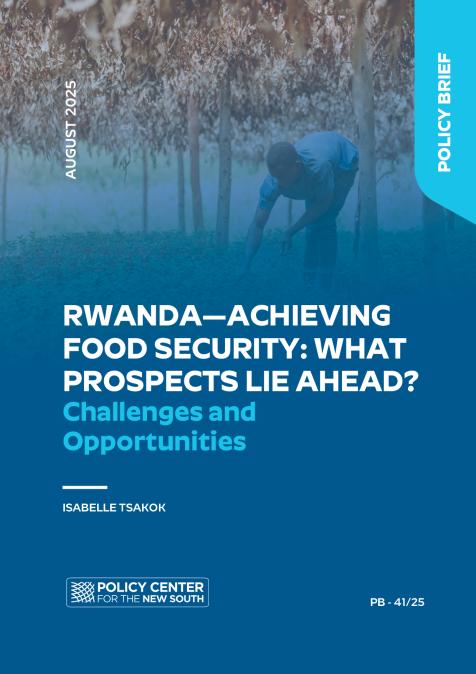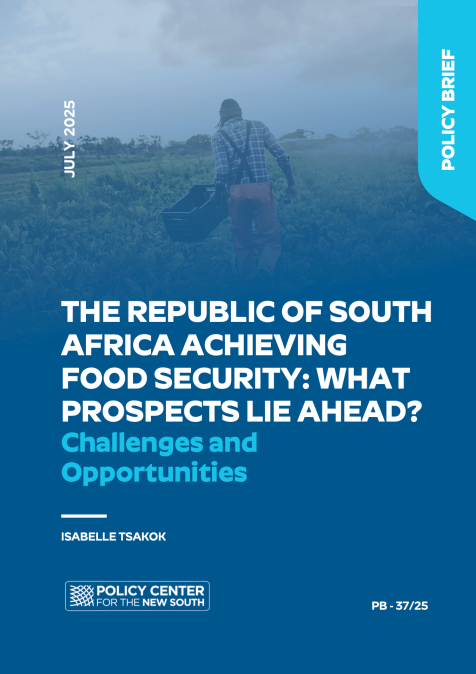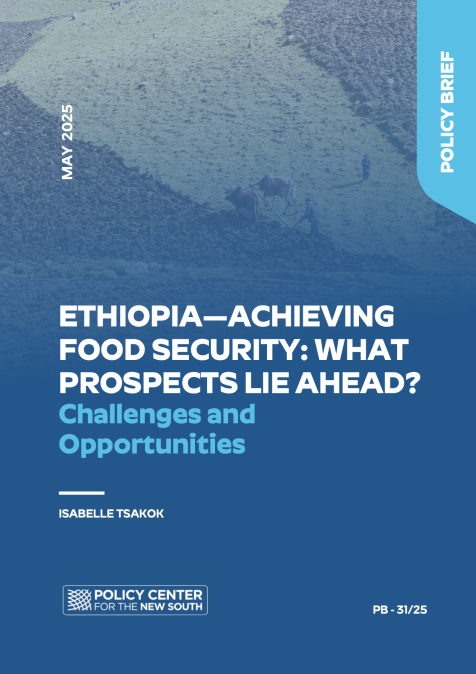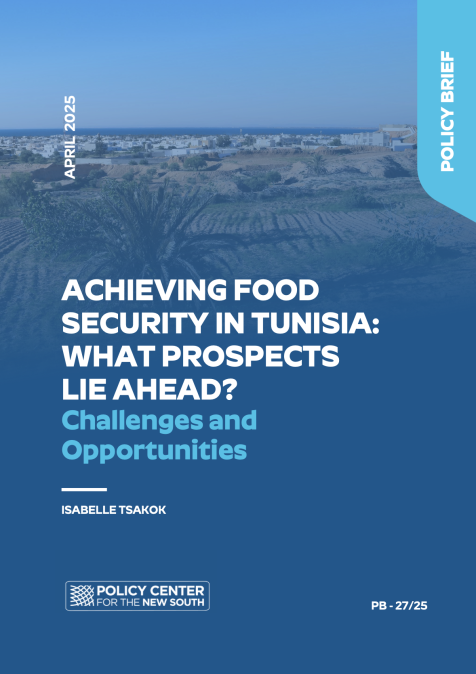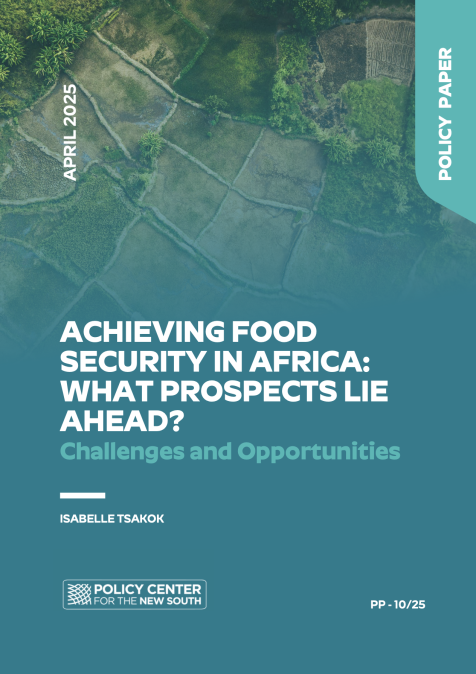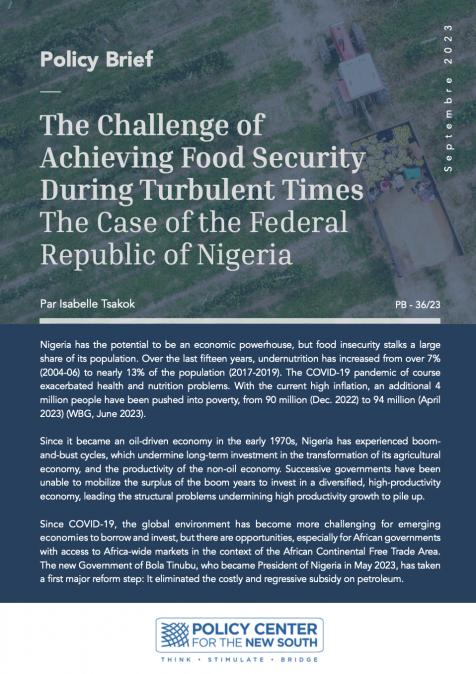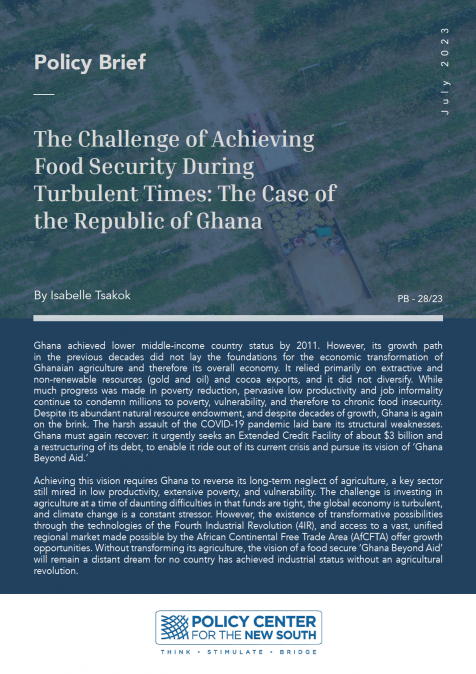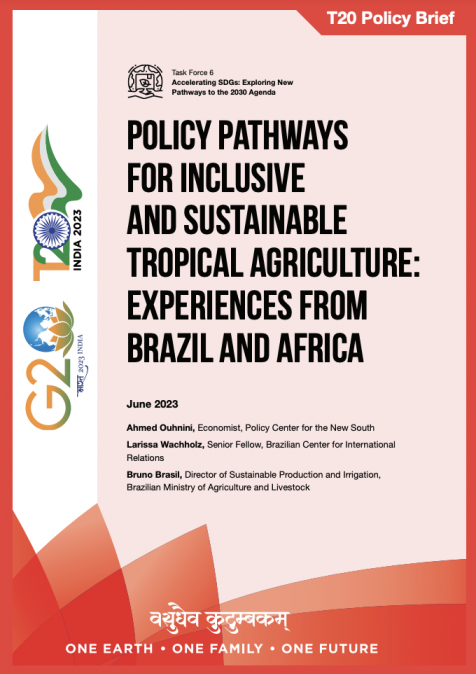Podcasts
Food insecurity: a major challenge to overcome
Related topics:
Ensuring food security for a growing population is one of the major challenges of the coming decades. The scarcity of natural resources, the negative impact of climate change on agricultural production, and the rapid urbanization are all among many other factors that threaten food security worldwide. Given that several million people in the world already suffer from undernourishment and malnutrition, it is necessary today to adopt adequate policies to meet food demand in each country. In light of these observations, Isabelle Tsakok, Senior Fellow at the Policy Center for the New South, explains in depth the concept of food security and outlines major factors that undermine food security.

